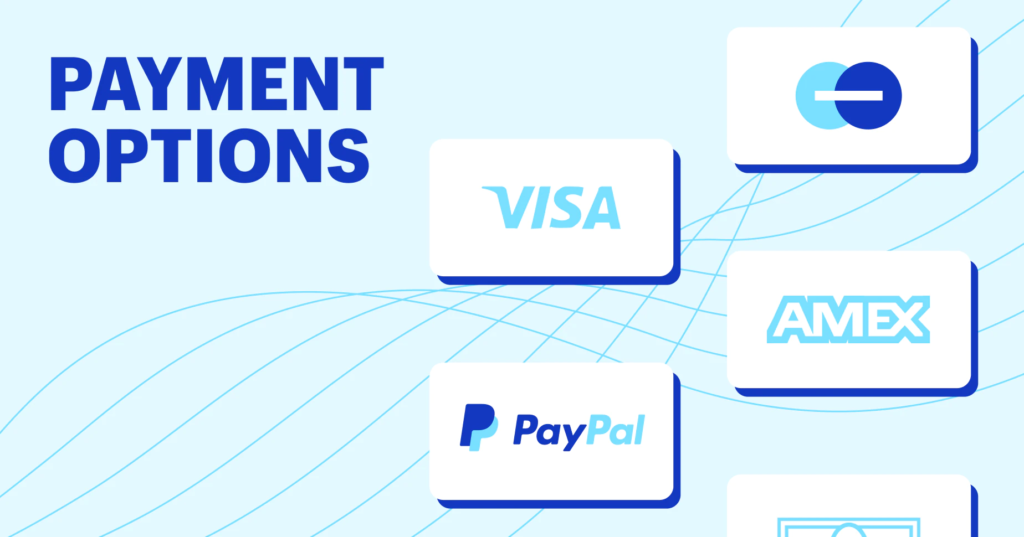AUTHOR : BABLI
DATE : 13/12/23
Introduction
Efficient and reliable payment systems[1] are essential for small businesses to thrive in today’s competitive marketplace. Payments for small business solutions are designed to cater to the unique needs of entrepreneurs, offering simplicity, affordability, and scalability. Whether you’re a brick-and-mortar store or running an online business[2], selecting the right payment method ensures smoother transactions and enhanced customer satisfaction. With a wide range of options, including mobile payments, point-of-sale systems, and digital wallets[3], small businesses can provide their customers with flexibility and convenience.
Challenges Faced by Small Businesses in Payments

Running a small business[4] comes with its own unique set of challenges, and payment processes are no exception. The most common issues include cash flow management, limited resources, and security concerns. Small businesses often struggle with maintaining a steady cash flow, making timely payments, and ensuring the security of transactions[5].
Benefits of Optimized Payment Solutions
Implementing optimized solutions can bring a myriad of benefits to small. Improved cash flow management allows for better financial planning, while enhanced customer satisfaction leads to increased loyalty and repeat business. Additionally, increased efficiency in payment processes can save time and resources.
Popular Payment Methods for Small Businesses
Small businesses have a variety of payment methods at their disposal. Credit and debit card payments, digital wallets, and online invoicing systems are among the popular choices. Each method has its advantages, and selecting the right one depends on the nature of the business and its customer base.

Choosing the Right Payment Solution
Selecting the right payment solution requires a careful consideration of needs, transaction fees, and security features. Understanding the specific requirements of the business and its customers is crucial for making an informed decision. Moreover, evaluating the long-term costs and benefits is essential for sustainable growth.
Steps to Implement Efficient Payment Systems
Implementing efficient payment systems involves thorough research, integration with existing systems, and employee training. Small should explore available options, seamlessly integrate new systems with their operations, and ensure that employees are well-versed in utilizing the new processes.
Case Studies
Examining successful small businesses that have implemented optimized payment solutions provides valuable insights. Real-world examples showcase the positive impact of tailored payment systems on various sizes and industries. By learning from these case studies, small businesses can adapt strategies to suit their unique needs.
Future Trends in Small Business Payments

Looking ahead, the landscape of small business payments is poised for significant changes. The adoption of blockchain and cryptocurrency, ongoing advancements in payment technology, and the influence of regulatory changes will shape the future of payment systems for small businesses.
Blockchain and Cryptocurrency Adoption
One of the most anticipated trends in small is the increased adoption of blockchain technology and cryptocurrencies. Blockchain, with its decentralized and secure nature, offers transparency in transactions and reduces the risk of fraud. Small businesses exploring these technologies may find themselves at the forefront of a financial revolution, simplifying cross-border transactions and minimizing transaction costs.
Continued Advancements in Payment Technology
As technology continues to advance, systems for small will also evolve. The integration of artificial intelligence (AI) and machine learning into payment processes can streamline operations, detect fraudulent activities, and provide personalized payment experiences for customers. that embrace these advancements are likely to gain a competitive edge, offering a seamless and efficient experience.
Impact of Regulatory Changes

The regulatory landscape surrounding payments is continually evolving. Small businesses must stay vigilant about changes in regulations governing financial transactions. These changes can influence transaction fees, data security requirements, and the overall compliance landscape. Staying informed and adapting to regulatory shifts ensures that small businesses operate within legal frameworks and maintain trust with their customers.
Conclusion
Choosing the right platform for payments for small businesses is vital for improving operational efficiency and customer satisfaction. With secure and versatile options available, small businesses can manage their cash flow seamlessly while providing customers with flexible transaction methods. By investing in the right tools, small businesses can enhance their growth potential and stay competitive in a dynamic marketplace. Whether it’s accepting card payments, mobile transactions, or digital wallets, optimizing payments for small businesses ensures a smoother and more reliable payment experience.
FAQs
1. Which payment methods are most effective for small businesses?
The best payment options for small enterprises include mobile payment apps (like Square or PayPal), credit card processors, point-of-sale systems, and digital wallets. Selecting the most suitable option hinges on your specific business needs and the payment preferences of your customers.
2. Are there affordable payment solutions for small businesses?
Yes, many platforms offer affordable payments for small business solutions with low transaction fees or subscription plans. Services like Stripe and Square cater specifically to small enterprises, providing cost-effective and flexible payment processing.
3. How do I ensure secure payments for small business transactions?
To ensure secure payments for small business transactions, use platforms with encryption, PCI compliance, and fraud detection tools. Regularly update your systems and train staff to identify potential security threats.
4. Can small businesses accept international payments?
Yes, many solutions for transactions for small businesses, such as Payoneer or Wise, support international transactions with currency conversion options. This feature helps small businesses expand their reach to a global audience.
5. What are the benefits of digital payments for small businesses?
Digital payments for small businesses provide faster transaction processing, reduced dependency on cash, and increased convenience for customers. They also allow businesses to track sales, manage cash flow, and reduce errors in financial reporting.





